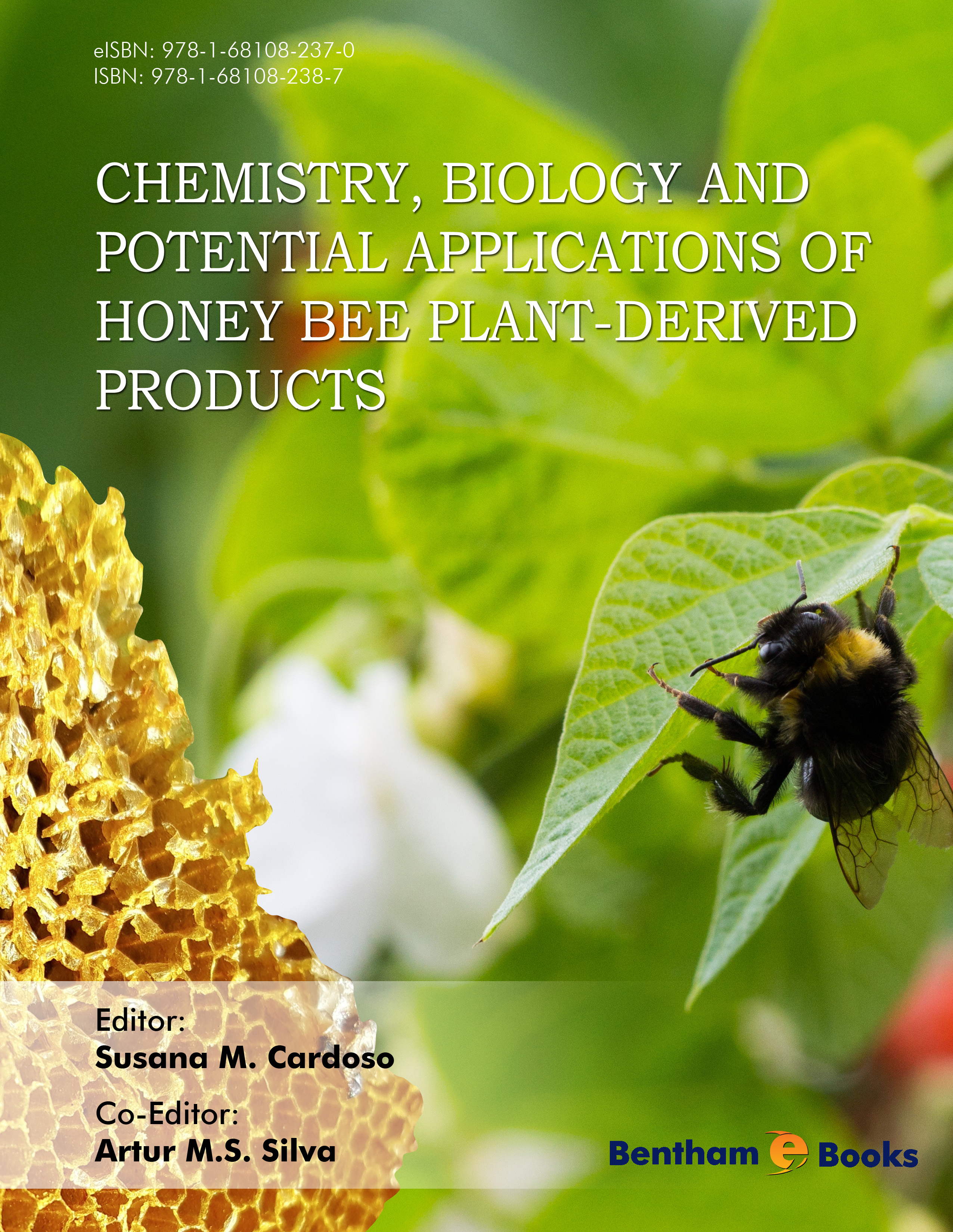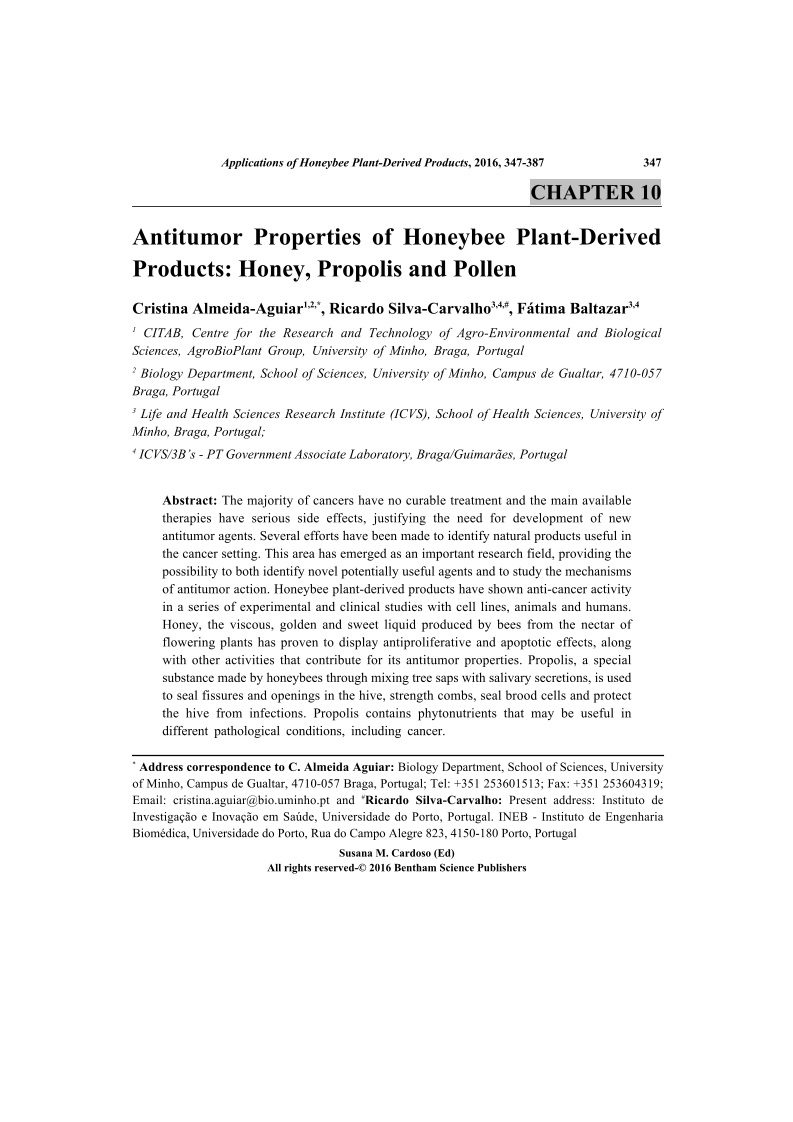Antitumor Properties of Honeybee Plant-Derived Products: Honey, Propolis and Pollen

- Authors: Cristina Almeida Aguiar1, Ricardo Silva-Carvalho2, Fátima Baltazar3
-
View Affiliations Hide Affiliations1 Biology Department, School of Sciences, University of Minho, Campus de Gualtar, 4710-057 Braga, Portugal. 2 Biology Department, School of Sciences, University of Minho, Campus de Gualtar, 4710-057 Braga, Portugal. 3 Biology Department, School of Sciences, University of Minho, Campus de Gualtar, 4710-057 Braga, Portugal.
- Source: Chemistry, Biology and Potential Applications of Honeybee Plant-Derived Products , pp 347-387
- Publication Date: June 2016
- Language: English
Antitumor Properties of Honeybee Plant-Derived Products: Honey, Propolis and Pollen, Page 1 of 1
< Previous page | Next page > /docserver/preview/fulltext/9781681082370/chapter-11-1.gif
The majority of cancers have no curable treatment and the main available therapies have serious side effects, justifying the need for development of new antitumor agents. Several efforts have been made to identify natural products useful in the cancer setting. This area has emerged as an important research field, providing the possibility to both identify novel potentially useful agents and to study the mechanisms of antitumor action. Honeybee plant-derived products have shown anti-cancer activity in a series of experimental and clinical studies with cell lines, animals and humans. Honey, the viscous, golden and sweet liquid produced by bees from the nectar of flowering plants has proven to display antiproliferative and apoptotic effects, along with other activities that contribute for its antitumor properties. Propolis, a special substance made by honeybees through mixing tree saps with salivary secretions, is used to seal fissures and openings in the hive, strength combs, seal brood cells and protect the hive from infections. Propolis contains phytonutrients that may be useful in different pathological conditions, including cancer. <p></p><p> Bee pollen, the bees´ primary food source, is plant pollen collected from a variety of plants and processed by honeybees. Demand for this natural product is rising since it has effects on a variety of biological functions, which contribute to the fight and prevention of cancer. This review focuses on the antitumor properties of honey, propolis and bee pollen as well as on the potential use of these honeybee plant-derived products to develop new therapeutic approaches for patients with different types of tumors.</p>
-
From This Site
/content/books/9781681082370.chapter-11dcterms_subject,pub_keyword-contentType:Journal -contentType:Figure -contentType:Table -contentType:SupplementaryData105

